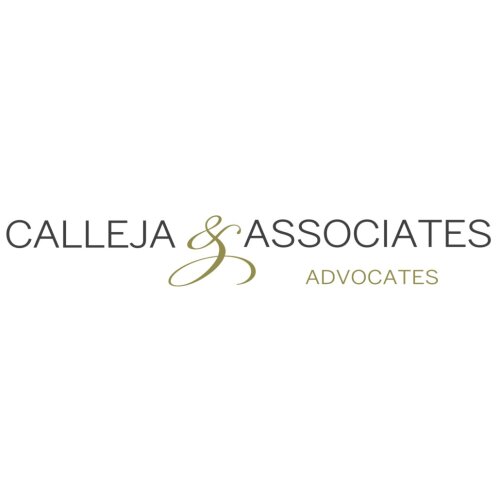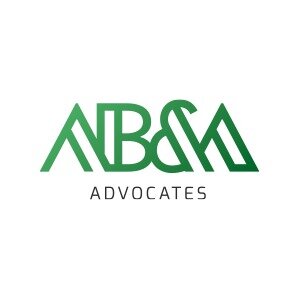Best Immigration Lawyers in Naxxar
Share your needs with us, get contacted by law firms.
Free. Takes 2 min.
List of the best lawyers in Naxxar, Malta
Malta Immigration Legal Articles
Browse our 3 legal articles about Immigration in Malta written by expert lawyers.
- Citizenship by Investment in Malta: Laws and Requirements
- Key Takeaways Malta immigration is governed by the Immigration Act (Cap. 217) and administered mainly by Identità, Residency Malta Agency, and Community Malta Agency. There is no instant Malta citizenship by investment. Malta offers citizenship by naturalisation for exceptional services by direct investment (S.L. 188.05) after 12-36 months of residence... Read more →
- CBI in Malta: Laws and Requirements for a Second Passport
- Key Takeaways Malta immigration is governed by the Immigration Act (Chapter 217) and administered by Identita' (residence and work), Community Malta Agency (citizenship), and Residency Malta Agency (investment and special residence programs). Common routes include the Single Permit for employment, family reunification, study, the Malta Permanent Residence Programme (MPRP), the... Read more →
- Golden Visas: Malta Residency by Investment Laws and Process
- Key Takeaways Malta’s immigration framework is set by the Immigration Act (Cap. 217) and administered mainly by Identita, Community Malta Agency, and Residency Malta Agency. Residency by investment (RBI) via the Malta Permanent Residence Programme (MPRP) gives permanent residence, not citizenship, while citizenship by investment is no longer offered -... Read more →
About Immigration Law in Naxxar, Malta
Immigration law in Naxxar, Malta, encompasses a variety of legal frameworks aimed at regulating the entry, stay, and exit of individuals in the country. The town of Naxxar, located in the Northern Region of Malta, is subject to Malta’s national immigration policies, as Malta is a member of the European Union (EU). The legal landscape is influenced by both national laws and EU regulations, covering aspects such as visas, residence permits, work permits, family reunification, asylum, and citizenship.
Why You May Need a Lawyer
There are several situations where legal assistance might be required in the field of immigration. These include:
- Visa Applications: Whether for work, study, or tourism, the visa application process can be complex and confusing, requiring detailed documentation.
- Work Permits: Non-EU nationals seeking employment in Malta may need help navigating the requirements and obtaining the necessary permits.
- Residence Permits: Legal advice may be needed to understand the types of residence permits available and the application process.
- Family Reunification: Bringing family members to Malta involves specific legal criteria and procedures.
- Asylum and Refugee Status: Individuals seeking asylum need specialized legal assistance to understand their rights and the application process.
- Appeals and Legal Representation: In cases of denied applications or legal disputes, professional representation becomes essential.
Local Laws Overview
Immigration in Naxxar operates under the broader legal framework of Malta. Key aspects of local immigration laws include:
- Visa Regulations: Different types of visas are available depending on the purpose of the stay, such as short-stay (Schengen) visas, long-stay visas, and transit visas.
- Residence and Work Permits: EU/EEA and Swiss nationals enjoy freedom of movement, while non-EU nationals require permits for residency and employment. These permits are subject to specific conditions and eligibility criteria.
- Family Reunification: Rules allow legally residing family members to join their relatives, provided they meet certain economic and accommodation standards.
- Asylum: Malta adheres to international conventions on refugee protection, and individuals can apply for asylum through the Office of the Refugee Commissioner.
- Citizenship: Citizenship can be acquired by birth, descent, marriage, or naturalization, each with its own set of legal requirements.
Frequently Asked Questions
What types of visas are available for entering Malta?
Malta offers several types of visas including Schengen short-stay visas, long-stay national visas, and transit visas. The requirements and application process differ based on the purpose and duration of stay.
How can I apply for a work permit in Malta?
Non-EU/EEA nationals need an employment license. The employer typically files the application with Identity Malta, including all necessary documentation and proof of labor market needs.
Can family members join me in Malta?
Yes, under family reunification laws, immediate family members like spouses and children can join you, provided you meet certain financial and accommodation criteria.
What are the requirements for obtaining Maltese citizenship?
Citizenship can be obtained through birth, descent, marriage, or naturalization. Each category has specific eligibility conditions and application procedures.
How do I apply for asylum in Malta?
To apply for asylum, you must register with the Office of the Refugee Commissioner, where your application will be processed according to Maltese and international law.
What is the process for renewing my residence permit?
Residence permits must be renewed before their expiration date by submitting a renewal application to Identity Malta along with updated documentation proving you still meet the requirements.
Do EU citizens need a permit to live and work in Malta?
EU/EEA and Swiss nationals do not need a permit to live and work in Malta, but they must register their residence if staying longer than three months.
What happens if my visa application is denied?
In case of a visa denial, you have the right to appeal the decision. It is advisable to seek legal counsel to guide you through the appeal process.
Are there any special provisions for student visas in Malta?
Yes, student visas are available for individuals enrolled in recognized educational institutions. These visas are usually long-stay (national) visas.
Can I work in Malta on a student visa?
Students are generally allowed to work part-time (up to 20 hours per week) during their studies, provided they obtain approval from Identity Malta.
Additional Resources
For more information and guidance, the following resources can be helpful:
- Identity Malta: The main governmental body responsible for handling immigration matters including visas, residence permits, and citizenship.
- Refugee Commissioner: Provides information and processes for asylum applications.
- Ministry for Home Affairs, National Security and Law Enforcement: Provides policy and regulatory information on immigration.
- Malta Immigration Law Firms: Professional legal services specializing in immigration law can provide personalized guidance and representation.
Next Steps
If you are in need of legal assistance in immigration matters, consider the following steps:
- Identify Your Needs: Determine the type of immigration assistance you require, whether it’s for a visa, work permit, residency, family reunification, or asylum.
- Consult Legal Experts: Reach out to immigration law firms or legal advisors in Naxxar who specialize in immigration law.
- Prepare Documentation: Gather all necessary documents related to your case, such as identification, financial records, and previous legal documents.
- Submit Applications: Work with your legal advisor to correctly prepare and submit the relevant applications to the appropriate authorities.
- Follow Up: Keep track of your application status and follow up with your legal advisor for any required updates or additional information.
- Stay Informed: Keep yourself updated with changes in immigration laws and policies in Malta to avoid any legal issues.
Lawzana helps you find the best lawyers and law firms in Naxxar through a curated and pre-screened list of qualified legal professionals. Our platform offers rankings and detailed profiles of attorneys and law firms, allowing you to compare based on practice areas, including Immigration, experience, and client feedback.
Each profile includes a description of the firm's areas of practice, client reviews, team members and partners, year of establishment, spoken languages, office locations, contact information, social media presence, and any published articles or resources. Most firms on our platform speak English and are experienced in both local and international legal matters.
Get a quote from top-rated law firms in Naxxar, Malta — quickly, securely, and without unnecessary hassle.
Disclaimer:
The information provided on this page is for general informational purposes only and does not constitute legal advice. While we strive to ensure the accuracy and relevance of the content, legal information may change over time, and interpretations of the law can vary. You should always consult with a qualified legal professional for advice specific to your situation.
We disclaim all liability for actions taken or not taken based on the content of this page. If you believe any information is incorrect or outdated, please contact us, and we will review and update it where appropriate.
Browse immigration law firms by service in Naxxar, Malta
Naxxar, Malta Attorneys in related practice areas.









